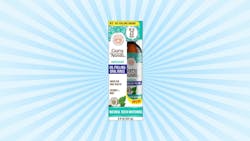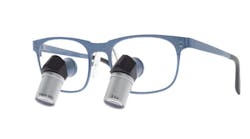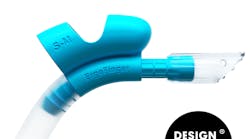Chairside Impact: Coconut oil pulling as a complementary, holistic practice
There is a lot of misinformation out there about coconut oil pulling, largely fueled by social media or the misuse of coconut oil by patients or friends. Let’s start by clarifying what coconut oil pulling is and is not.
No replacement for brushing
Coconut oil pulling is not equivalent to and should never replace brushing and flossing. Mechanical disruption of the bacterial biofilm is essential for optimal oral health. As dental professionals, we would not recommend replacing brushing and flossing with oil pulling, just as we wouldn’t recommend using mouthwash in place of brushing and flossing.
Unfortunately, many patients have been misinformed about the proper use of this Ayurvedic practice, overlooking the crucial role of mechanical plaque removal and relying solely on oil pulling. It’s essential to emphasize that oil pulling should complement, not replace, conventional oral hygiene practices.
If you agree that brushing, flossing, or interproximal plaque reduction should never be replaced with a mouthwash or oil swishing, then we’re on the same page. Now, let’s explore the benefits of coconut oil and how it can effectively address gingival inflammation in our patients.
Antibacterial properties
Research has shown that coconut oil consists of 92% saturated acids, with lauric acid comprising 50%. Furthermore, studies have highlighted the remarkable antimicrobial properties of monolaurin and monoglycerides derived from lauric acid, underscoring their efficacy against a diverse array of microorganisms.1
Studies have shown that oil pulling exhibits antibacterial activity against C. albicans, the most common opportunistic fungi of oral thrush. (C. albicans is particularly problematic in individuals with compromised immune systems or those taking certain medications, such as antibiotics.) Oil pulling also functions to inhibit S. mutans, the bacterial strain primarily known for caries formation.2 This is great news for our patients struggling with caries, but we are focusing on inflammation in this article.
Combatting inflammation
Plaque-induced gingivitis arises from the interaction of microorganisms in the plaque biofilm with the host’s inflammatory cells. This is precisely the challenge we confront daily in the clinic—red, swollen gums with pockets that bleed upon probing. However, recent research that focuses on oil pulling therapy provides promising insights.3
Oil pulling therapy is effective at reducing pathogens that cause gingival diseases. Research shows that it can have a significant reduction in modified gingival index scores when compared to the widely accepted chlorhexidine rinse treatment.4 These findings underscore the potential of oil pulling as an adjunctive therapy in combatting the inflammation and microbial burden associated with gingivitis.
While the practice of swishing coconut oil in one’s mouth for 3–20 minutes may not appeal to everyone, some individuals are willing to explore alternative methods to enhance their oral health routine. This inclination toward unconventional approaches underscores the importance of offering accessible and appealing oral hygiene options that align with individuals’ preferences and lifestyles.
In conclusion, coconut oil pulling presents a paradigm shift in oral care, emphasizing the cultivation of a healthier oral microbiome. By incorporating this holistic practice into their daily routine, patients can augment traditional oral hygiene measures, fostering a more balanced and resilient oral microbiome.
Editor's note: This article appeared in the April/May 2024 print edition of RDH magazine. Dental hygienists in North America are eligible for a complimentary print subscription. Sign up here.
References
- Carpo BG, Verallo-Rowell VM, Kabara J. Novel antibacterial activity of monolaurin compared with conventional antibiotics against organisms from skin infections: an in vitro study. J Drugs Dermatol. 2007;6(10):991-998.
- Claesson MJ, van Sinderen D, O’Toole PW. The genus Lactobacillus—a genomic basis for understanding its diversity. FEMS Microbiol Lett. 2007;269(1):22-28. doi:10.1111/j.1574-6968.2006.00596.x
- Hinrichs JE, Novak MJ. Classification of diseases and conditions affecting the periodontium. In: Carranza’s Clinical Periodontology. 11th ed. Reed Elsevier India Private Limited; 2012:41.
- Lakshmi T, Rajendran R, Krishnan V. Perspectives of oil pulling therapy in dental practice. Dent Hypotheses. 2013;4:131.
Amanda Hale, BS, RDH, is a seasoned hygienist with more than 15 years of experience who excels in patient care and digital marketing. Through her YouTube channel, The Curvy Scaler, she promotes dental hygiene and small businesses. As social media director at Hygiene Elevated, Amanda cohosts a podcast and launched a hygiene apparel line. Her blend of clinical expertise and digital savvy makes her a leader in the field, inspiring colleagues and patients alike.
About the Author

Amanda L. Hale, BS, RDH
Amanda L. Hale, BS, RDH, a seasoned hygienist with more than 15 years of experience, excels in patient care and digital marketing. Through her YouTube channel, The Curvy Scaler, she promotes dental hygiene and small businesses. As social media director at Hygiene Elevated, Amanda cohosts a podcast and launched a hygiene apparel line. Her blend of clinical expertise and digital savvy makes her a leader in the field, inspiring colleagues and patients alike. Contact her at [email protected].


